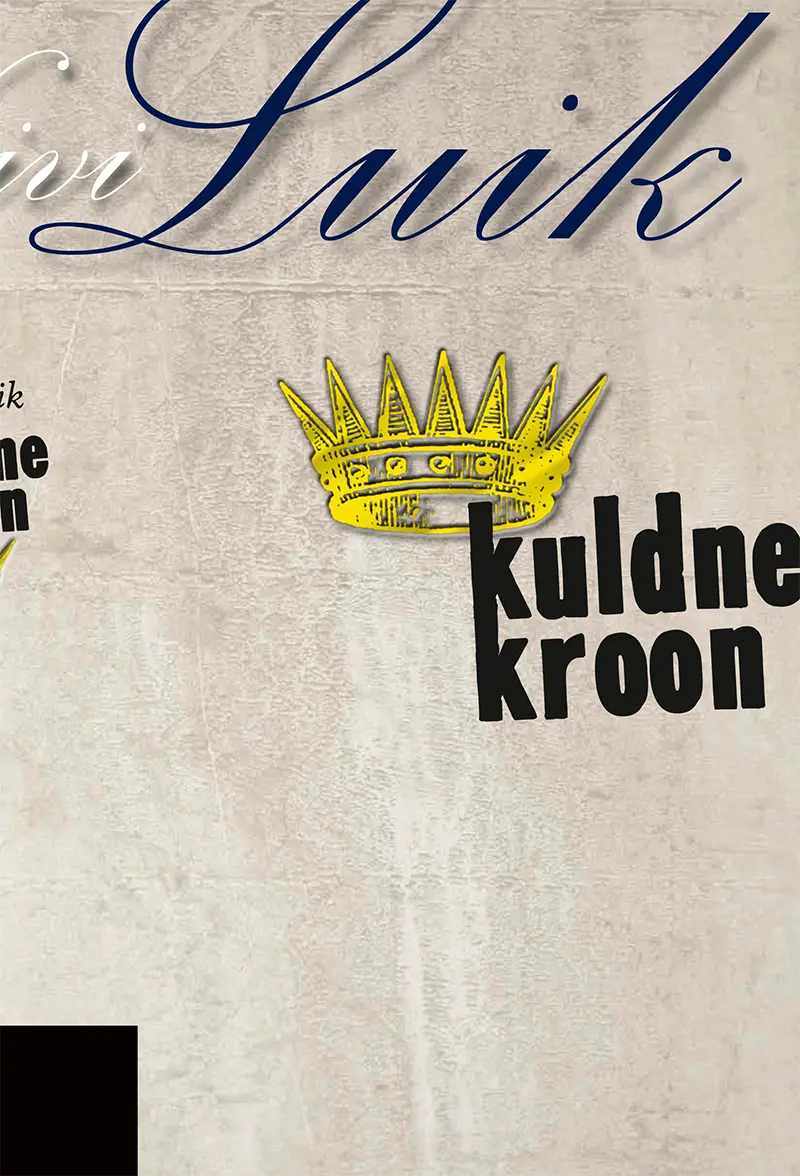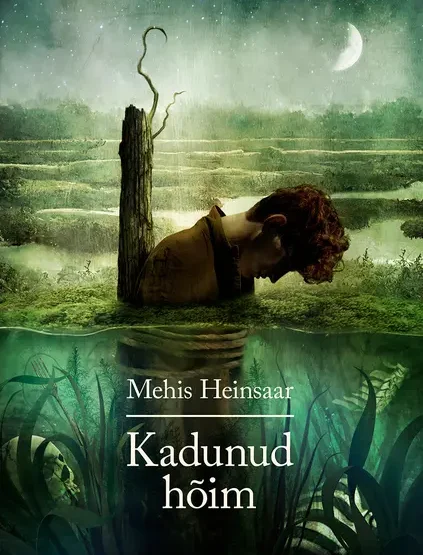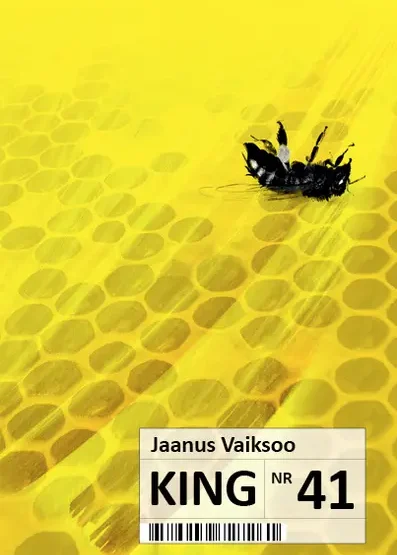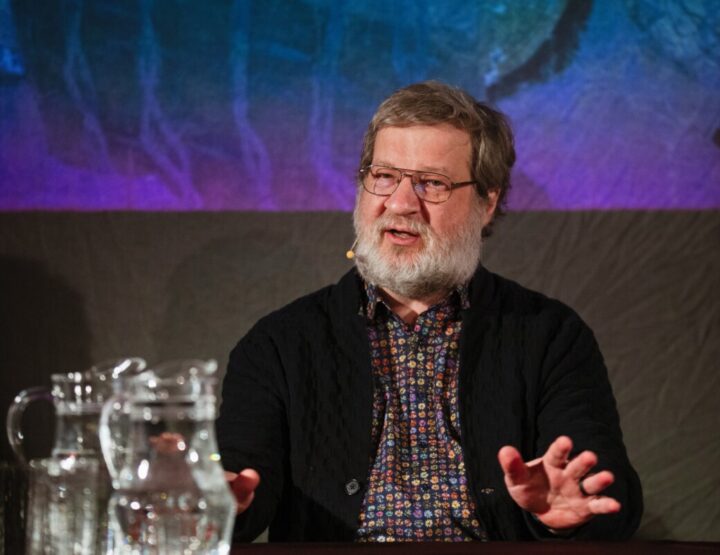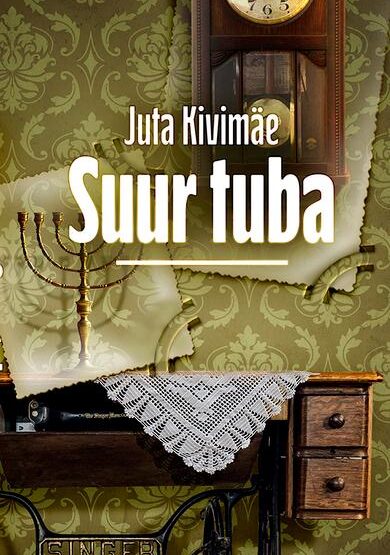Viivi Luik is undoubtedly one of the most important and internationally renowned authors of Estonian literature. Enchanting Estonian readers in the mid-1960s with her nature poetry, when she was 18 years old, her first novel The Seventh Spring of Peace was published in the mid-1980s and became a bestseller. Written from a child’s perspective, the book not only put into words the attitude towards life of an entire post-war generation, but also showed that the courage and will to live is not dependent on the regime and is accessible to each individual.
The publication of Viivi Luik’s second novel The Beauty of History falls directly into the period of the fall of the Soviet Union. Published in 1991, the book portrays the time around 1968. Again – as in “Shadow Theatre” (2010) – time and the human being are interwoven and the individual is concerned with breaking free from the spell of his time, at least mentally.
Although Viivi Luik’s novels are written in Estonian, they belong to world literature, and both requite and find engagement outside the Estonian language. In addition to her novels, her poetry, radio plays, and essays have also been published in various European languages. Her essays often provide an unexpectedly sharp focus on the circumstances of our time.
Luik’s latest novel, The Golden Crown, is a collection of magical moments shared with people who are no longer living. The book comprises 22 stories: 20 literary portraits of late friends and two pieces on the topic of writing. It opens with “The Key to the Book”, a brief self-interview, and concludes with almost encyclopedic biographies of the characters portrayed and, in some cases, stories from their lives. The use of these sections is a poetic means to help prevent and divert discussions on the work’s genre.
Among those portrayed are Luik’s writer-friends (Juhan Viiding, Mati Unt, Ene Mihkelson, Artur Alliksaar, Uku Masing, Jaan Kross, Jaan Kaplinski), artist-friends (Andres Tolts, Mare Vint, Olev Subbi), philosopher-friends and esteemed persons (Vello Salo, Marju Lepajõe, Lennart Meri, Anne Fried), a publisher (Hans Georg Heepe), family members (Hans Kitsing, Johannes Luik, Hilda Luik), and writers whom the author never personally met (A. H. Tammsaare, Thomas Mann).
The portrait of Juhan Viiding begins: “Whoever believes that memories reveal another person is mistaken. All memories only reveal the one who is remembering.” (p. 39) With this, Luik hints that although the book contains many true accounts of both the author and her close friends and family, they shouldn’t be read merely as biographical revelations. Rather, they hold clues to how one might recognize and appreciate the wonder and fragility of the world around us.
Luik is fascinated by the dark side of life—what we fear, why, and how words may be used to overcome it. In the first story, “The King and the Poet”, the author describes her most significant reading places and the importance of reading aloud, retelling stories, what books mean to her, and how to interpret the Word becoming Flesh and the Flesh becoming Word. Luik shares the influences on her path to becoming a writer and details the foundations of her poetry.
What matters most is the understanding that writing cannot be a goal in and of itself. That, which is written—the Word—must express the writer, their era, and beauty. In other words, the Flesh must become the Word. For this to be at all possible, one must learn to practice humility; must perceive human mortality and the hazard of beauty. One must physically feel the meaning of fear and find the courage to confront it. It’s interesting to note that many of Luik’s favorite reading places are tied to the proximity of death, places that somehow resemble sepulchers or sarcophaguses.
“The Professor and the Young Woman”, which is nestled in the middle of the collection, is a story or parable about the professionality of writing that claims creating rudimentary texts is a sin and a crime. The piece stands in dialogue with the allegory of Uncle Gottfried in “The King and the Poet”.
The Golden Crown instructs us to pay attention to life’s magical moments. It shows how Flesh can become Word and offer encouragement to anyone who wishes to see and hear.
Viivi Luik
The Golden Crown
EKSA, 2023, 295 pp.
ISBN 9789916677421
Aija Sakova (b. 1980) is a writer, literary scholar, and a manager of culture and research. She currently works as a Head of the Research Administration Office of Tallinn University. She has published academic books on Christa Wolf and Ene Mihkelson, as well as a poetry book, essay collections, and a book of letters to the writer and pianist Käbi Laretei.

